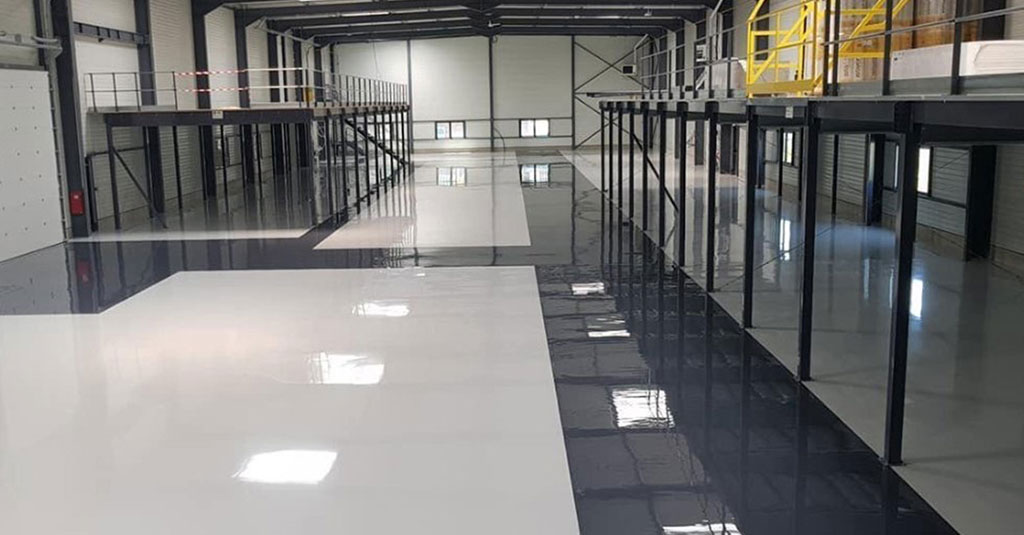
Selecting the Right Epoxy Flooring System. What You Need to Consider
First time customers tend to think that epoxy products are all similar. If that was the case, our industry would be much simpler and risk-free. The truth is that epoxy products are all produced differently and are all rated for specific applications and environments. Some have more impact resistance, some have more tensile strength, some have moisture resistant capabilities, and some are rated to withstand thermal shock and cycling. Additionally, epoxy and urethane products require different concrete surface profile requirements and methods.
There is no such thing as a “one-size fits all” approach in our line of work, so it is important to understand the different factors and variables associated with a successful epoxy flooring installation.
What are some of the questions you should ask prior to moving forward with an epoxy flooring job?
Question 1:
What is being coated and why is it being coated?
Every end-user, project manager, architect, or business owner has different objectives. Plant Managers may just be trying to spruce up their space before the end-of-year budget termination or before their boss returns for inspection. Food processing plants may require a coating that lasts for the long term in order to improve productivity or pass federal inspections. Whatever it may be, the objectives need to be communicated prior to moving forward with an epoxy installation so that your epoxy flooring contractor can provide you with an estimate that achieves your best interests.
Question 2:
What kind of exposure will the system encounter?
This is the most important question that needs to be answered. Your epoxy flooring contractor should know, prior to providing you with an estimate, what sorts of chemicals, alkali, products, materials, and equipment will be in contact with the flooring system. Here are a few things that can help guide you throughout your site visit:
- Will the epoxy flooring system be exposed to elevated temperature conditions?
- Are there any harsh chemicals or fumes anticipated to be in contact with the surface?
- Are the floors going to be exposed to weathering or environmental elements?
- How frequent will the epoxy floors be cleaned, and with what chemicals?
- What sort of abrasion and wear are expected for the environment?
- How is the condition of the current concrete substrate?
- Are there any existing coatings already applied to the concrete substrate?
Question 3:
How and under what circumstances will the epoxy floor be installed?
- Will the epoxy installation need to take place over the course of several phases, or in one single mobilization?
- Is the facility going to be operating simultaneously with the epoxy flooring installation, or will it be shut down and completely available for work, without hinderance?
- Does the facility require VOC-Free product installation, or can fumes be present?
- Does the epoxy flooring system require rapid-cure capabilities?
Question 4:
What are the expectations of the epoxy flooring systems service-life?
Long story short, the expected service life of an epoxy floor will be determinant on a few variables:
- Does the end-user lease or own their space?
If you are leasing a space, there is no need to invest in a high-performance flooring system that will last 30 years. You can get by with a more budget-friendly flooring system that can last 3-5 years.
- What is the end-user’s budget?
Everybody would love to have a flooring system that lasts forever and pay pennies on the dollar for it. Unfortunately, this is not realistic. Epoxy flooring systems can be rated for different environments by modifying products and coverage rates. Adjusting and offering an array of different products can achieve almost any budget. However, by doing so, you will also be adjusting the warranty period of the flooring system.
- What sort of exposure will the epoxy floors encounter?
As noted above, there are many environmental factors that affect the lifespan of an epoxy floor. Epoxy floors can be designed and constructed to withstand the abuse of any environment, but the proper products and millage will be required – which also means the proper budget will need to be obtainable.
At Blackrock Industrial, we are committed to guiding and educating our customers throughout their epoxy, urethane or concrete flooring projects. These are the sorts of things we go over during our site visits and over the telephone, and we are dedicated to explaining our processes and products in detailed and precise ways. This is what helps our clients make educated decisions for their flooring installation, and helps to ensure that all parties are on the same page prior to contracting.


